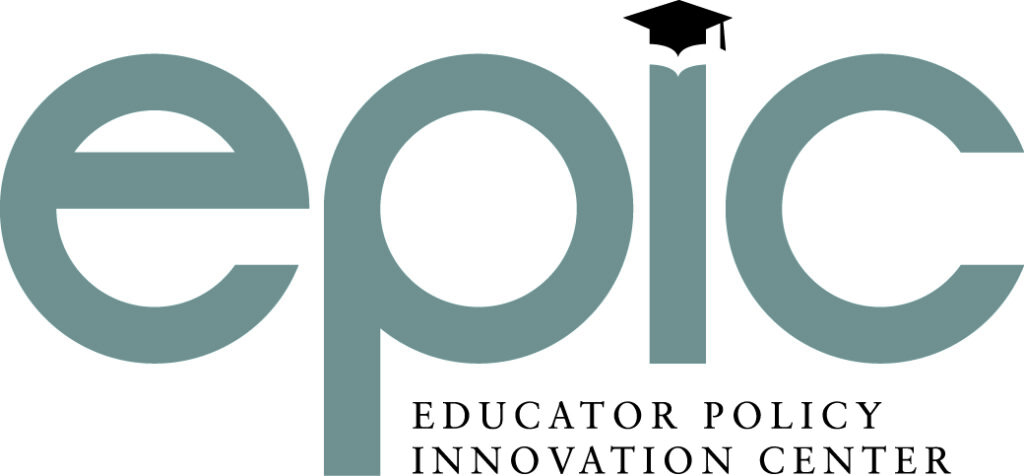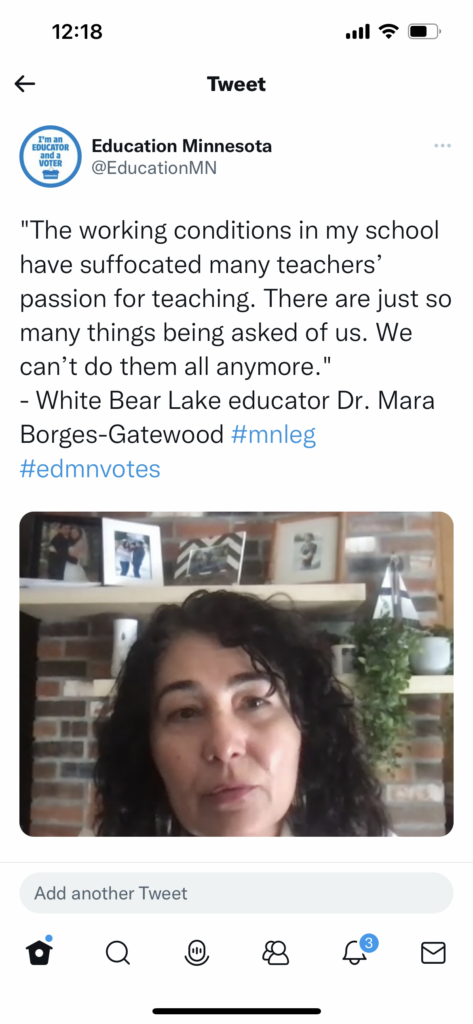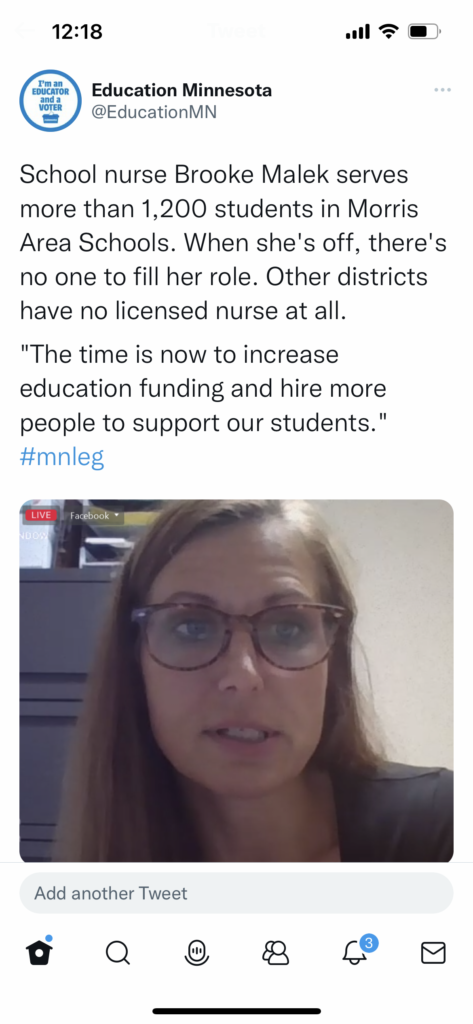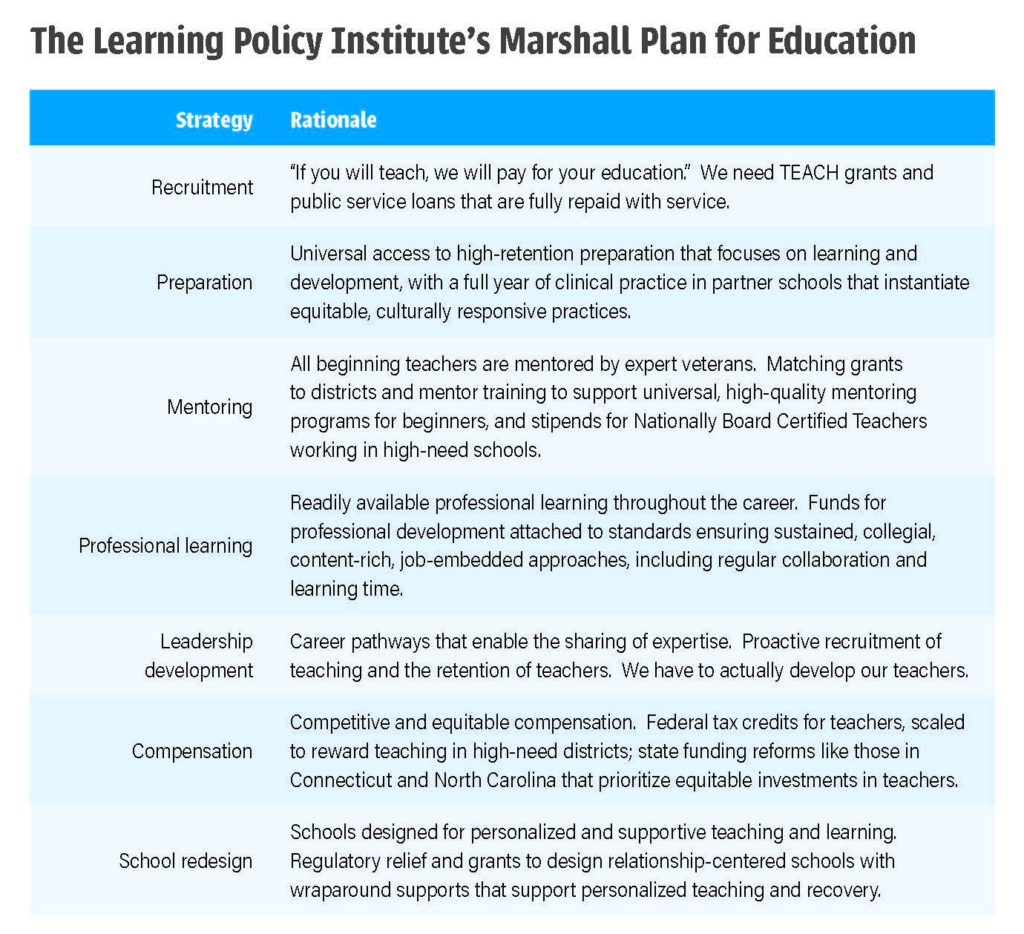
Schools all over Minnesota are reporting shortages of staff. At the beginning of the school year, there were more than 300,000 open jobs for educators across the country.
Education Minnesota held a press conference Aug. 23 to release our latest report from our think tank, the Educator Policy Innovation Center, or EPIC. The report is titled “Minnesota Schools at a Breaking Point: Pandemic Stories From Educators Across the State.”

“A school is more than classrooms. School buildings are ecosystems where each educator has an important part to play. When one group of educators is hurting, all students feel it,” said Education Minnesota President Denise Specht, at the press conference.
The COVID-19 pandemic severely disrupted public schools in Minnesota. The academic years from March 2020 until summer 2022 brought unforeseen obstacles that too often seemed insurmountable, even for veteran educators.
Education Minnesota wanted to issue this EPIC paper to insert the firsthand accounts from our members into important policy conversations, from which educators are often excluded, as well as lift up the resilience, power and creativity of our membership. The EPIC team collected stories from hundreds of Education Minnesota members from February to March, and then spent time quantifying the data and collecting research to support their findings and recommendations.
The press conference was held to release the paper and to share these stories and the issues which still remain this school year with the public. Education Minnesota is also preparing its legislative priorities for the 2023 session, of which a key component will be these issues.
The EPIC team, made up of members and staff, collected detailed narratives from members about public education in the time of COVID-19 and found seven consistent themes echoed across the entire state.
Those themes are:
- Workloads are unmanageable.
- Educators lack a voice in decision-making.
- Student mental and social emotional health are at crisis levels.
- Educators are reporting higher levels of physical and mental health concerns.
- Education support professionals feel disrespected and exploited.
- Educators are exhausted by a lack of meaningful support and continuous toxic positivity.
- Lawmakers continue to fail special education students and the educators who serve them.
Data points emerged from the research, such as:

- Educators feel ignored and silenced and are reporting unseen levels of job dissatisfaction. The first annual Merrimack College Teacher Survey indicated only 12 percent of educators are “very satisfied” with their job. This is more than a 30-point drop from previous years.
- Student mental health was further aggravated by the COVID-19 pandemic. Unfortunately, Minnesota schools still lack enough school-based, mental health professionals to meet national staffing recommendations.
- Policies rooted in systemic racism have led to Minnesota reporting some of the worst achievement gaps between white students and BIPOC students. BIPOC children are also too often the victims of discriminatory disciplinary practices, and BIPOC families, especially Native and Indigenous families, were disproportionally harmed by the digital divide.
- Minnesota’s public schools are still chronically underfunded. Economists estimate that it would take an $8-9 billion initial investment followed by high-levels of sustained funding to begin repairing the damage that has been done by underfunding public schools in this state.
- Educator attrition is a statewide crisis. We know that 40 percent of educators have reported they were very likely or fairly likely to leave the profession in the next two years.
What solutions did the EPIC report find to build schools worthy of ALL students and educators?
In the full report, the EPIC team provided detailed explanations of specific policy proposals as well as peer-reviewed proof that our proposed interventions will work. In addition, the Learning Policy Institute’s “Marshall Plan for Education” was recommended as a roadmap for policymakers.

Progressive change requires collective action and collaboration. One educator in our study lamented “I wish the spirit of innovation with which we started this pandemic teaching era could be sustained, and that more leaders could effectively convince some of the loud nay-sayers in the community that we’re working—really working!—to make education better.”
Education Minnesota knows educators are trying to implement change, but they alone cannot repair all the harm, especially as we continue to stifle their efforts with low funding. Educators and students need our help to succeed, and the union plans to continue to use the new EPIC report in its advocacy with lawmakers, decision makers, administrators and the public.


